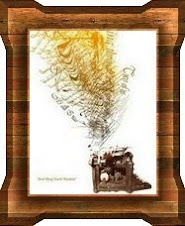As he sat on the Mount of Olives, the disciples came to him privately, saying, "Tell us, when will these things be, and what will be the sign of your coming and of the close of the age?" And Jesus answered them, "See that no one leads you astray. For many will come in my name, saying, 'I am the Christ,' and they will lead many astray. And you will hear of wars and rumors of wars. See that you are not alarmed, for this must take place, but the end is not yet. For nation will rise against nation, and kingdom against kingdom, and there will be famines and earthquakes in various places.
All these are but the beginning of the birth pains.
(Matt 24:3-8 ESV)
Don't the disciples of Jesus sound just like us? We want to know what will happen in the future, especially the future time when Jesus will return. The best-selling success of the Left Behind series of books and the fascination with Nostradamus give evidence that many people seek to know the future.
However, Jesus responds, not with the time of His return, but with events leading up to it. He mentions four specific signs: false messiahs, wars/rumors of wars, earthquakes, and famines. He calls them the beginning of birth pangs and a look at history demonstrates that every generation since Christ's ascension to heaven experienced these events. Watching the evening news for a few minutes demonstrates that our generation is no exception.
More importantly, Jesus' response contains two commands about the ways we are to respond to these events. First command: listen to godly advisors. Bad advice can lead us out of God's purpose for our lives. Not everyone who says, "The sky is falling! Follow me, I can save you," knows what they are talking about. Without comparing what we hear to what God says in the Bible, praying about the issue, and talking to other godly people, we can be led astray.
Spending too much time watching the TV news networks makes the second command almost impossible to obey; Jesus tells us not to be frightened. Rather than "Don't worry. Be happy," advice, the command gives us an opportunity to prepare as God directs. (Fear and worry can drown out God's voice.)
When we know the possibility exists for an event to occur, we can prepare. Fire is one of the most common catastrophic events. For that reason, people hold fire drills in schools, offices, and homes. Knowing how to respond in case of fire reduces both the risk and the fear.
Famine is also a common catastrophe. We see pictures of the effects of famine in foreign countries often. Even in the United States where food is plentiful, Feeding America estimates that one in four children struggle with hunger.
A grass-roots opinion seems to be growing that the United States may face a famine in the near future. A military officer recommends to an executive that he store food for his family. A financial advisor emails a similar suggestion to his clients. A neighbor receives a large order from Emergency Essentials. A relative begins gardening and storing the harvest.
Should you be alarmed? No, go back to the first command and listen to God. Determine what preparations – if any – God wants you to take. Then obey God. (That takes the risk out of anything!) Relieve your fear by taking to heart the prophet Habakkuk's words when he saw a famine looming over Israel. He said, "Though the fig tree should not blossom, nor fruit be on the vines, the produce of the olive fail and the fields yield no food, the flock be cut off from the fold and there be no herd in the stalls, yet I will rejoice in the Lord; I will take joy in the God of my salvation." (Habakkuk 3:17-18, ESV) Deciding to trust God before a catastrophe occurs is the best antidote for any fear.
Whether we are faced with war, earthquake or famine, we can trust God and rejoice in His love. After all, nothing can separate us from God's love.
.jpg)



.jpg)

Great advise and well grounded in Scripture. With all the bad news invading our lives today, we need to trust God all the more.
ReplyDeleteJohn
I agree, John, especially if we want to sleep at night. Trusting God certainly lowers the number of hours we spend tossing and turning on our beds.
ReplyDelete